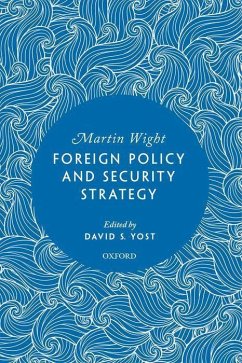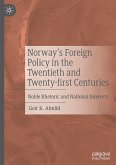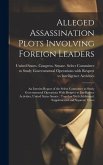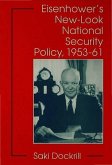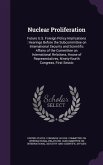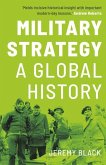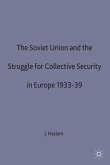- Gebundenes Buch
- Merkliste
- Auf die Merkliste
- Bewerten Bewerten
- Teilen
- Produkt teilen
- Produkterinnerung
- Produkterinnerung
This book collects works by the late Professor Martin Wight (1913-1972), an historian and scholar of international relations.
Andere Kunden interessierten sich auch für
![Norway¿s Foreign Policy in the Twentieth and Twenty-first Centuries Norway¿s Foreign Policy in the Twentieth and Twenty-first Centuries]() Geir K. AlmlidNorway¿s Foreign Policy in the Twentieth and Twenty-first Centuries90,99 €
Geir K. AlmlidNorway¿s Foreign Policy in the Twentieth and Twenty-first Centuries90,99 €![Alleged Assassination Plots Involving Foreign Leaders: An Interim Report of the Select Committee to Study Governmental Operations With Respect to Inte Alleged Assassination Plots Involving Foreign Leaders: An Interim Report of the Select Committee to Study Governmental Operations With Respect to Inte]() Alleged Assassination Plots Involving Foreign Leaders: An Interim Report of the Select Committee to Study Governmental Operations With Respect to Inte40,99 €
Alleged Assassination Plots Involving Foreign Leaders: An Interim Report of the Select Committee to Study Governmental Operations With Respect to Inte40,99 €![Eisenhower's New-Look National Security Policy, 1953-61 Eisenhower's New-Look National Security Policy, 1953-61]() S. DockrillEisenhower's New-Look National Security Policy, 1953-61112,99 €
S. DockrillEisenhower's New-Look National Security Policy, 1953-61112,99 €![Nuclear Proliferation: Future U.S. Foreign Policy Implications: Hearings Before the Subcommittee on International Security and Scientific Aff Nuclear Proliferation: Future U.S. Foreign Policy Implications: Hearings Before the Subcommittee on International Security and Scientific Aff]() Nuclear Proliferation: Future U.S. Foreign Policy Implications: Hearings Before the Subcommittee on International Security and Scientific Aff43,99 €
Nuclear Proliferation: Future U.S. Foreign Policy Implications: Hearings Before the Subcommittee on International Security and Scientific Aff43,99 €![Defending Destiny Defending Destiny]() James Demmin-De LiseDefending Destiny24,99 €
James Demmin-De LiseDefending Destiny24,99 €![Military Strategy Military Strategy]() Jeremy BlackMilitary Strategy10,99 €
Jeremy BlackMilitary Strategy10,99 €![The Soviet Union and the Struggle for Collective Security in Europe1933-39 The Soviet Union and the Struggle for Collective Security in Europe1933-39]() J. HaslamThe Soviet Union and the Struggle for Collective Security in Europe1933-39112,99 €
J. HaslamThe Soviet Union and the Struggle for Collective Security in Europe1933-39112,99 €-
-
-
This book collects works by the late Professor Martin Wight (1913-1972), an historian and scholar of international relations.
Hinweis: Dieser Artikel kann nur an eine deutsche Lieferadresse ausgeliefert werden.
Hinweis: Dieser Artikel kann nur an eine deutsche Lieferadresse ausgeliefert werden.
Produktdetails
- Produktdetails
- Verlag: Oxford University Press
- Seitenzahl: 304
- Erscheinungstermin: 17. Januar 2024
- Englisch
- Abmessung: 236mm x 158mm x 23mm
- Gewicht: 618g
- ISBN-13: 9780192867889
- ISBN-10: 0192867881
- Artikelnr.: 68541153
- Herstellerkennzeichnung
- Libri GmbH
- Europaallee 1
- 36244 Bad Hersfeld
- gpsr@libri.de
- Verlag: Oxford University Press
- Seitenzahl: 304
- Erscheinungstermin: 17. Januar 2024
- Englisch
- Abmessung: 236mm x 158mm x 23mm
- Gewicht: 618g
- ISBN-13: 9780192867889
- ISBN-10: 0192867881
- Artikelnr.: 68541153
- Herstellerkennzeichnung
- Libri GmbH
- Europaallee 1
- 36244 Bad Hersfeld
- gpsr@libri.de
Dr. David S. Yost is a Distinguished Professor Emeritus at the U.S. Naval Postgraduate School, Monterey, California. His books have been published by Harvard University Press, the United States Institute of Peace, and the International Institute for Strategic Studies. He has held fellowships from Fulbright, NATO, the Council on Foreign Relations, the Woodrow Wilson International Center for Scholars, and the United States Institute of Peace, and he was a senior research fellow at the NATO Defense College in Rome in 2004-2007. He earned a Ph.D. in international relations from the University of Southern California. Martin Wight was one of the most important twentieth century British scholars of International Relations. He taught at the London School of Economics (1949-1961) and the University of Sussex (1961-1972), where he served as the founding Dean of the School of European Studies. Wight is often associated with the British Committee on the Theory of International Politics and the so-called English School of International Relations.
* Foreword by Paul Schulte
* 1: Introduction: Martin Wight on Foreign Policy and Security Strategy
* 2: The Balance of Power in Diplomatic Investigations
* 3: The Balance of Power and International Order in The Bases of
International Order
* 4: Does Peace Take Care of Itself?
* 5: The Idea of Neutrality
* 6: Nationalism and World Order
* 7: Has Scientific Advance Changed the Nature of International
Politics in Kind, Not Merely in Degree?
* 8: The Political Consequences of Nuclear Weapons
* 9: War and Peace: The Hobbesian Predicament
* 10: War and Peace: Nuclear Weapons and Change in International
Politics
* 11: Arms Races
* 12: Interests of States
* 13: Interests, Honour and Prestige
* 14: Is the Commonwealth a Non-Hobbesian Institution?
* 15: Suggestions for a Projected Study of International Security
Organisation
* 16: From the League to the UN
* 17: The United Nations Assembly
* 18: The United Nations General Assembly
* 19: The Security Council
* 20: Two Blocs in One World
* 21: The Power Struggle within the United Nations
* 22: Review of Henrique de Pinheiro, The World State or the New Order
of Common Sense
* 23: Review of John Middleton Murry, Trust or Perish
* 24: Review of David Mitrany, A Working Peace System: An Argument for
the Functional Development of International Organization (London:
National Peace Council, 1946)
* 25: Review of Ely Culbertson, Must We Fight Russia? (Philadelphia:
The John C. Winston Company, 1946)
* 26: Review of C. E. M. Joad, Conditions of Survival (London: Federal
Union, 1946)
* 27: Review of J. L. Brierly, The Covenant and the Charter
(Cambridge: Cambridge University Press, 1947)
* 28: Review of W. W. Rostow, The American Diplomatic Revolution
(Oxford: Clarendon Press. 1947)
* 29: Review of William C. Bullitt, The Great Globe Itself: A Preface
to World Affairs (New York: Scribner, 1946, and London: Macmillan,
1947)
* 30: Review of Frances Perkins, U.S. Secretary of Labor from
1933-1945, The Roosevelt I Knew, (New York: Viking Press, 1947;
London: Hammond, Hammond and Co., 1947)
* 31: Review of Barbara Ward, Policy for the West (London: Penguin,
1951)
* 32: Review of John MacLaurin, The United Nations and Power Politics
(London: Allen and Unwin, 1952)
* 33: Review of Hugh Seton-Watson, The Pattern of Communist Revolution
(London: Methuen, 1953). (American Edition: From Lenin to Malenkov:
The History of World Communism, New York: Praeger, 1953)
* 34: Review of A. P. Thornton, The Imperial Idea and Its Enemies: A
Study in British Power (London: Macmillan, 1959)
* 35: Review of John H. Herz, International Politics in the Atomic Age
(New York: Columbia University Press, 1959).
* 36: Review of Rupert Emerson, From Empire to Nation: The Rise to
Self-Assertion of Asian and African Peoples (Cambridge,
Massachusetts, Harvard University Press; and London, Oxford
University Press, 1960)
* 37: Review of Hugh Seton-Watson,Neither War nor Peace: The Struggle
for Power in the Post-War World (London, Methuen, 1960)
* 1: Introduction: Martin Wight on Foreign Policy and Security Strategy
* 2: The Balance of Power in Diplomatic Investigations
* 3: The Balance of Power and International Order in The Bases of
International Order
* 4: Does Peace Take Care of Itself?
* 5: The Idea of Neutrality
* 6: Nationalism and World Order
* 7: Has Scientific Advance Changed the Nature of International
Politics in Kind, Not Merely in Degree?
* 8: The Political Consequences of Nuclear Weapons
* 9: War and Peace: The Hobbesian Predicament
* 10: War and Peace: Nuclear Weapons and Change in International
Politics
* 11: Arms Races
* 12: Interests of States
* 13: Interests, Honour and Prestige
* 14: Is the Commonwealth a Non-Hobbesian Institution?
* 15: Suggestions for a Projected Study of International Security
Organisation
* 16: From the League to the UN
* 17: The United Nations Assembly
* 18: The United Nations General Assembly
* 19: The Security Council
* 20: Two Blocs in One World
* 21: The Power Struggle within the United Nations
* 22: Review of Henrique de Pinheiro, The World State or the New Order
of Common Sense
* 23: Review of John Middleton Murry, Trust or Perish
* 24: Review of David Mitrany, A Working Peace System: An Argument for
the Functional Development of International Organization (London:
National Peace Council, 1946)
* 25: Review of Ely Culbertson, Must We Fight Russia? (Philadelphia:
The John C. Winston Company, 1946)
* 26: Review of C. E. M. Joad, Conditions of Survival (London: Federal
Union, 1946)
* 27: Review of J. L. Brierly, The Covenant and the Charter
(Cambridge: Cambridge University Press, 1947)
* 28: Review of W. W. Rostow, The American Diplomatic Revolution
(Oxford: Clarendon Press. 1947)
* 29: Review of William C. Bullitt, The Great Globe Itself: A Preface
to World Affairs (New York: Scribner, 1946, and London: Macmillan,
1947)
* 30: Review of Frances Perkins, U.S. Secretary of Labor from
1933-1945, The Roosevelt I Knew, (New York: Viking Press, 1947;
London: Hammond, Hammond and Co., 1947)
* 31: Review of Barbara Ward, Policy for the West (London: Penguin,
1951)
* 32: Review of John MacLaurin, The United Nations and Power Politics
(London: Allen and Unwin, 1952)
* 33: Review of Hugh Seton-Watson, The Pattern of Communist Revolution
(London: Methuen, 1953). (American Edition: From Lenin to Malenkov:
The History of World Communism, New York: Praeger, 1953)
* 34: Review of A. P. Thornton, The Imperial Idea and Its Enemies: A
Study in British Power (London: Macmillan, 1959)
* 35: Review of John H. Herz, International Politics in the Atomic Age
(New York: Columbia University Press, 1959).
* 36: Review of Rupert Emerson, From Empire to Nation: The Rise to
Self-Assertion of Asian and African Peoples (Cambridge,
Massachusetts, Harvard University Press; and London, Oxford
University Press, 1960)
* 37: Review of Hugh Seton-Watson,Neither War nor Peace: The Struggle
for Power in the Post-War World (London, Methuen, 1960)
* Foreword by Paul Schulte
* 1: Introduction: Martin Wight on Foreign Policy and Security Strategy
* 2: The Balance of Power in Diplomatic Investigations
* 3: The Balance of Power and International Order in The Bases of
International Order
* 4: Does Peace Take Care of Itself?
* 5: The Idea of Neutrality
* 6: Nationalism and World Order
* 7: Has Scientific Advance Changed the Nature of International
Politics in Kind, Not Merely in Degree?
* 8: The Political Consequences of Nuclear Weapons
* 9: War and Peace: The Hobbesian Predicament
* 10: War and Peace: Nuclear Weapons and Change in International
Politics
* 11: Arms Races
* 12: Interests of States
* 13: Interests, Honour and Prestige
* 14: Is the Commonwealth a Non-Hobbesian Institution?
* 15: Suggestions for a Projected Study of International Security
Organisation
* 16: From the League to the UN
* 17: The United Nations Assembly
* 18: The United Nations General Assembly
* 19: The Security Council
* 20: Two Blocs in One World
* 21: The Power Struggle within the United Nations
* 22: Review of Henrique de Pinheiro, The World State or the New Order
of Common Sense
* 23: Review of John Middleton Murry, Trust or Perish
* 24: Review of David Mitrany, A Working Peace System: An Argument for
the Functional Development of International Organization (London:
National Peace Council, 1946)
* 25: Review of Ely Culbertson, Must We Fight Russia? (Philadelphia:
The John C. Winston Company, 1946)
* 26: Review of C. E. M. Joad, Conditions of Survival (London: Federal
Union, 1946)
* 27: Review of J. L. Brierly, The Covenant and the Charter
(Cambridge: Cambridge University Press, 1947)
* 28: Review of W. W. Rostow, The American Diplomatic Revolution
(Oxford: Clarendon Press. 1947)
* 29: Review of William C. Bullitt, The Great Globe Itself: A Preface
to World Affairs (New York: Scribner, 1946, and London: Macmillan,
1947)
* 30: Review of Frances Perkins, U.S. Secretary of Labor from
1933-1945, The Roosevelt I Knew, (New York: Viking Press, 1947;
London: Hammond, Hammond and Co., 1947)
* 31: Review of Barbara Ward, Policy for the West (London: Penguin,
1951)
* 32: Review of John MacLaurin, The United Nations and Power Politics
(London: Allen and Unwin, 1952)
* 33: Review of Hugh Seton-Watson, The Pattern of Communist Revolution
(London: Methuen, 1953). (American Edition: From Lenin to Malenkov:
The History of World Communism, New York: Praeger, 1953)
* 34: Review of A. P. Thornton, The Imperial Idea and Its Enemies: A
Study in British Power (London: Macmillan, 1959)
* 35: Review of John H. Herz, International Politics in the Atomic Age
(New York: Columbia University Press, 1959).
* 36: Review of Rupert Emerson, From Empire to Nation: The Rise to
Self-Assertion of Asian and African Peoples (Cambridge,
Massachusetts, Harvard University Press; and London, Oxford
University Press, 1960)
* 37: Review of Hugh Seton-Watson,Neither War nor Peace: The Struggle
for Power in the Post-War World (London, Methuen, 1960)
* 1: Introduction: Martin Wight on Foreign Policy and Security Strategy
* 2: The Balance of Power in Diplomatic Investigations
* 3: The Balance of Power and International Order in The Bases of
International Order
* 4: Does Peace Take Care of Itself?
* 5: The Idea of Neutrality
* 6: Nationalism and World Order
* 7: Has Scientific Advance Changed the Nature of International
Politics in Kind, Not Merely in Degree?
* 8: The Political Consequences of Nuclear Weapons
* 9: War and Peace: The Hobbesian Predicament
* 10: War and Peace: Nuclear Weapons and Change in International
Politics
* 11: Arms Races
* 12: Interests of States
* 13: Interests, Honour and Prestige
* 14: Is the Commonwealth a Non-Hobbesian Institution?
* 15: Suggestions for a Projected Study of International Security
Organisation
* 16: From the League to the UN
* 17: The United Nations Assembly
* 18: The United Nations General Assembly
* 19: The Security Council
* 20: Two Blocs in One World
* 21: The Power Struggle within the United Nations
* 22: Review of Henrique de Pinheiro, The World State or the New Order
of Common Sense
* 23: Review of John Middleton Murry, Trust or Perish
* 24: Review of David Mitrany, A Working Peace System: An Argument for
the Functional Development of International Organization (London:
National Peace Council, 1946)
* 25: Review of Ely Culbertson, Must We Fight Russia? (Philadelphia:
The John C. Winston Company, 1946)
* 26: Review of C. E. M. Joad, Conditions of Survival (London: Federal
Union, 1946)
* 27: Review of J. L. Brierly, The Covenant and the Charter
(Cambridge: Cambridge University Press, 1947)
* 28: Review of W. W. Rostow, The American Diplomatic Revolution
(Oxford: Clarendon Press. 1947)
* 29: Review of William C. Bullitt, The Great Globe Itself: A Preface
to World Affairs (New York: Scribner, 1946, and London: Macmillan,
1947)
* 30: Review of Frances Perkins, U.S. Secretary of Labor from
1933-1945, The Roosevelt I Knew, (New York: Viking Press, 1947;
London: Hammond, Hammond and Co., 1947)
* 31: Review of Barbara Ward, Policy for the West (London: Penguin,
1951)
* 32: Review of John MacLaurin, The United Nations and Power Politics
(London: Allen and Unwin, 1952)
* 33: Review of Hugh Seton-Watson, The Pattern of Communist Revolution
(London: Methuen, 1953). (American Edition: From Lenin to Malenkov:
The History of World Communism, New York: Praeger, 1953)
* 34: Review of A. P. Thornton, The Imperial Idea and Its Enemies: A
Study in British Power (London: Macmillan, 1959)
* 35: Review of John H. Herz, International Politics in the Atomic Age
(New York: Columbia University Press, 1959).
* 36: Review of Rupert Emerson, From Empire to Nation: The Rise to
Self-Assertion of Asian and African Peoples (Cambridge,
Massachusetts, Harvard University Press; and London, Oxford
University Press, 1960)
* 37: Review of Hugh Seton-Watson,Neither War nor Peace: The Struggle
for Power in the Post-War World (London, Methuen, 1960)

